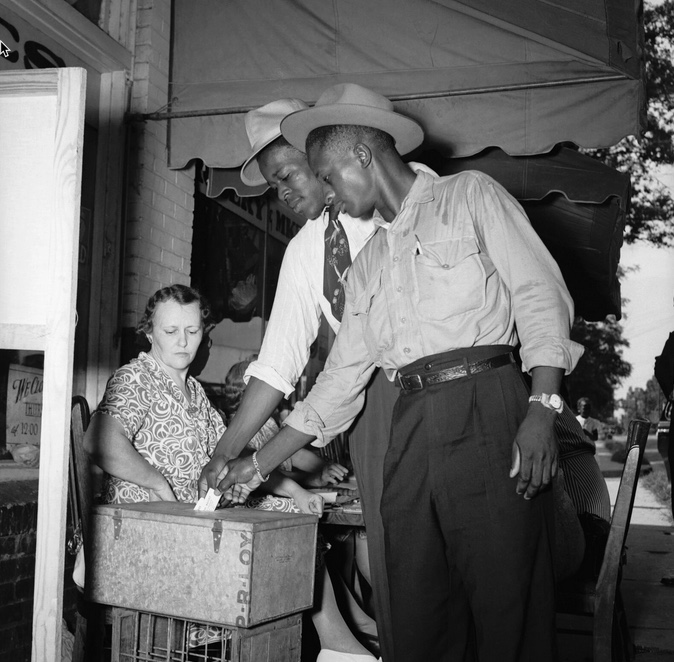LEARN MORE
- Watch debate at R Street between National Popular Vote’s Eileen Reavey and Patrick Rosenstiel and NPV’s opponents Tara Ross and Trent England
- Watch Jesse Wegman, author of Let the People Pick the President
- Watch Michael Steele, former Chair of the Republican National Committee
- Watch Prof. George Edwards III, author of Why the Electoral College Is Bad for America
As our revived national conversation on race has made clear, the legacies of slavery and white supremacy run wide and deep in American society and political life. One such legacy — which is particularly noteworthy in a presidential election season — has been the survival and preservation of the Electoral College, an institution that has been under fire for more than 200 years. Our complicated method of electing presidents has been the target of recurrent reform attempts since the early 19th century, and the politics of race and region have figured prominently in their defeat.
It is, of course, no secret that slavery played a role in the original design of our presidential election system — although historians disagree about the centrality of that role. The notorious formula that gave states representation in Congress for three-fifths of their slaves was carried over into the allocation of electoral votes; the number of electoral votes granted to each state was (and remains) equivalent to that state’s representation in both branches of Congress. This constitutional design gave white Southerners disproportionate influence in the choice of presidents, an edge that could and did affect the outcome of elections.
Not surprisingly, the slave states strenuously opposed any changes to the system that would diminish their advantage. In 1816, when a resolution calling for a national popular vote was introduced in Congress for the first time, it was derailed by the protestations of Southern senators. The slaveholding states “would lose the privilege the Constitution now allows them, of votes upon three-fifths of their population other than freemen,” objected William Wyatt Bibb of Georgia on the floor of the Senate. “It would be deeply injurious to them.”
- Watch Dr. John Hudak, author of Presidential Pork: White House Influence over the Distribution of Federal Grants
- National Popular Vote web site has 14 explanatory videos
- Answers to 131 myths




